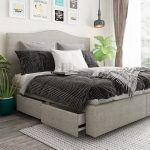As we mentioned in our previous blog on the topic of snoring, snoring can be a very serious issue if left untreated. We saw that snoring is much more than merely an annoyance to those people who sleep near you, snoring affects your sleeping quantity and quality, your daytime fatigue, irritability, and leads to an array of severe health problems such as sleep apnoea and heart disease.
Snoring affects your happiness, health, relationships, work, success and everything in between. When we left you last time, we mentioned a range of effective treatments for snoring and now we are going to expand on them in the hope you and your doctor can pinpoint a treatment that will work for you. The best treatment for snoring varies according to the severity, presence of sleep apnoea, age, body-weight, alcohol-consumption and your specific medical history.
TREATMENTS FOR SNORING
Theravent
Small adhesive devices cover the nostrils and a unique valve system eliminates snoring by increasing the pressure inside the airway. This can be a very effective treatment for snoring and has proven a success when combined with other snoring treatments like lateral sleep and weight-reduction.
Exclusively Lateral Sleep
This is a non-invasive treatment for snoring. It prevents the tongue, soft palate and uvula from falling backwards under the effect of gravity. This results in an increased speed of air-flow through the narrowed airway. Simple measures like the use of a bolster pillow placed lengthwise in the bed or pinning tennis balls to the back of your shirt can be effective. The whole idea is that this will train people the habit of sleeping laterally and then you will no longer require any props.
Night Shift Device
A lateral sleep position aid that assists patients to sleep only on their side. The device accurately monitors sleep-position and vibrates when supine sleep is detected. It records positional data and snoring volumes.
Weight-loss
Weight loss will generally decrease the severity of snoring. Losing even a little weight can reduce fatty tissue in the back of the throat and decrease snoring.
Quit Smoking
Smoking causes the walls of airways to retain fluid and swell; this causes the airway to narrow, increasing the likelihood of snoring. Not surprisingly smokers are 4 to 5 times more likely than non-smokers to suffer from snoring.
Mandibular Advancement Splint (MAS)
A small device which is placed in the mouth during sleep, causing the lower jaw and tongue to be held more forward than usual. This minimises vibration of the tissues at the back of the pharynx, reducing the volume of snoring.
Continuous Positive Airway Pressure (CPAP)
A compact air pump delivers a flow of pressurized air from a mask direct to your airway. This pressurised air acts as a pneumatic splint and prevents the airway from collapsing, which causes snoring to stop.
Nasal Steroids and Allergy Treatments
Nasal congestion limits the amount of air a person can breathe through their nose while asleep. Nasal steroids can be an effective way to combat the underlying allergies causing the nasal congestion and can be a good short-term fix.
External Nasal Strips
Nasal strips can reduce snoring in some patients through opening the nasal passages, but they are limited in their success and there is currently no scientific evidence to suggest they are effective long-term treatment options for snoring.
Take control of your health today and manage your snoring. It is critical for you to sleep better and in turn live happier and healthier. For further information please consult your GP.
(Image Courtesy of www.pinterest.com)





